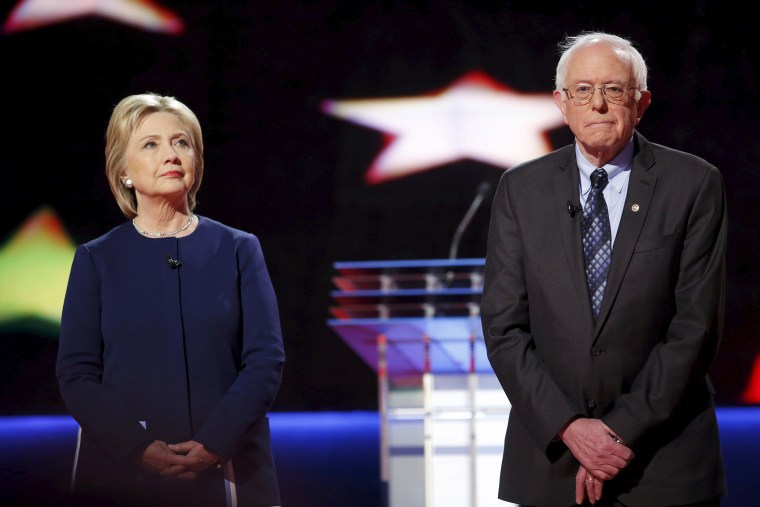The bulk of the attention surrounding
Bernie Sanders' interview with the
New York Daily News this week focused on the senator struggling at times
with policy details. In response to a variety of questions, the Vermont independent gave responses such as, "It's something I have not studied"; "I don't know the answer to that"; and "I haven't thought about it a whole lot."
But another area of contention surrounds a subject Sanders understands perfectly well.
Towards the end of the interview, the Daily News editors noted, "There's a case currently waiting to be ruled on in Connecticut. The victims of the Sandy Hook massacre are looking to have the right to sue for damages the manufacturers of the weapons. Do you think that that is something that should be expanded?" Sanders, seeking clarification, said, "Do I think the victims of a crime with a gun should be able to sue the manufacturer, is that your question?"
Told that it was the question,
he replied, "No, I don't."
As
Politico reported, this isn't sitting well with some of the lawsuit's Democratic supporters.
Connecticut Sen. Chris Murphy and Gov. Dannel Malloy attacked Bernie Sanders on Tuesday for stating that shooting victims should not be able to sue gun manufacturers, an issue that has dogged the Vermont senator throughout his presidential run. "I don't know why our party would nominate someone that's squishy on the issue of guns, this is a very personal issue for those of us that represent Sandy Hook," Murphy, who is a supporter of Hillary Clinton, said in an interview with POLITICO. "The idea that Sandy Hook families should be completely barred from court is really backwards and unfair."
Keep in mind that Connecticut's Democratic presidential primary is April 26, just a week after New York's. The state's governor and both of its U.S. senators have already formally endorsed Clinton.
It's important to note that, in Monday's interview, Sanders elaborated on his perspective on this issue. After expressing his opposition to lawsuits targeting gun manufacturers, the senator circled back to add some specificity to his position: "In the same sense that if you're a gun dealer and you sell me a gun and I go out and I kill him [gestures to someone in room].... Do I think that that gun dealer should be sued for selling me a legal product that he misused? [Shakes head no.] But I do believe that gun manufacturers and gun dealers should be able to be sued when they should know that guns are going into the hands of wrong people. So if somebody walks in and says, 'I'd like 10,000 rounds of ammunition,' you know, well, you might be suspicious about that. So I think there are grounds for those suits, but not if you sell me a legal product."
In other words, the senator's position has some nuance, even if it's one of the few issues in which Sanders faces criticism from the left.
Complicating matters further, Paul Waldman
explained yesterday that Sanders' previous approach to the issue points to some relevant shifts.
It gets complicated because of Sanders' past opposition to gun laws. He opposed the Brady Law, and supported the Protection of Lawful Commerce in Arms Act (PLCAA), a 2005 law that granted gun manufacturers and sellers sweeping immunity from all kinds of lawsuits (Clinton voted against it). He has justified that vote by saying that he wouldn't want to see "mom and pop" gun stores sued when a gun they sell gets used in a crime, but the truth is that the bill went way beyond that. [...] And here's what's really strange: Sanders continues to defend his vote for the PLCAA, even though he recently signed on as a co-sponsor to a bill that would repeal it.
The result is a picture that's a little murky. As the Democratic race continues, it's an issue that appears ripe for a real, substantive debate.
